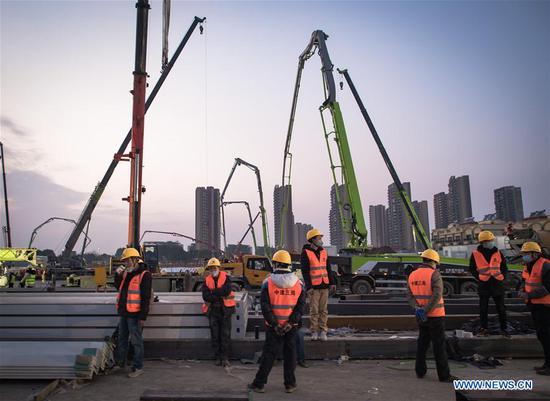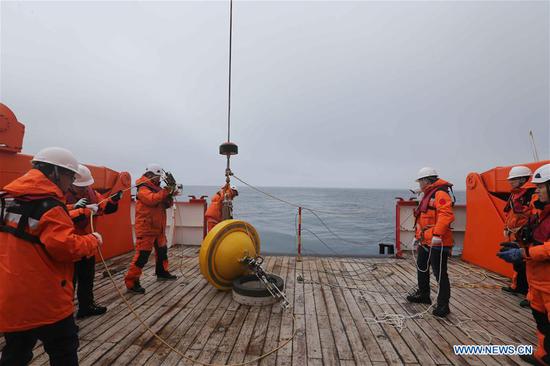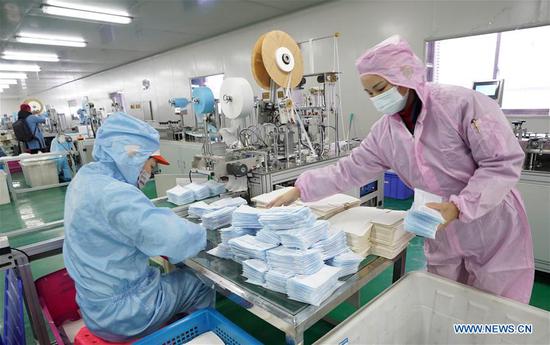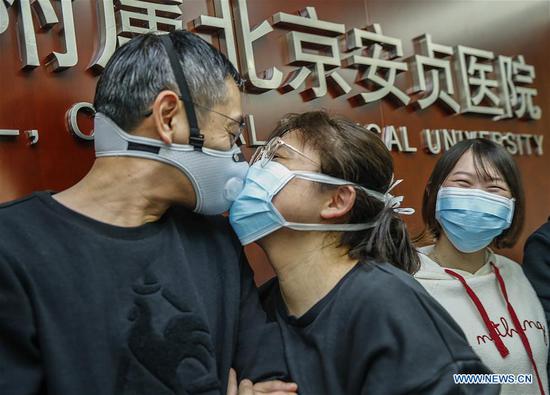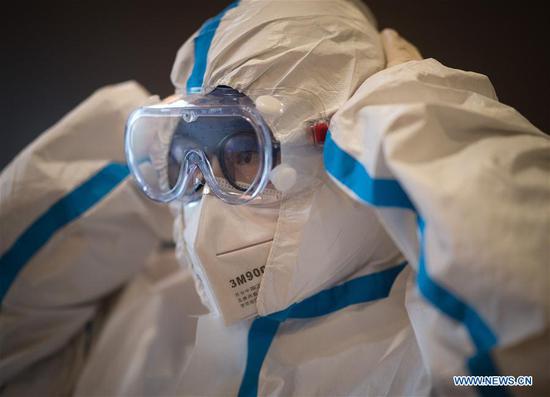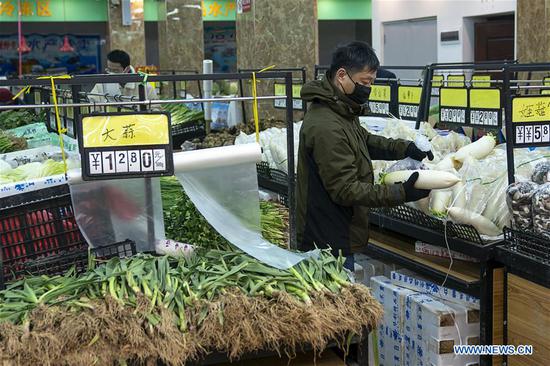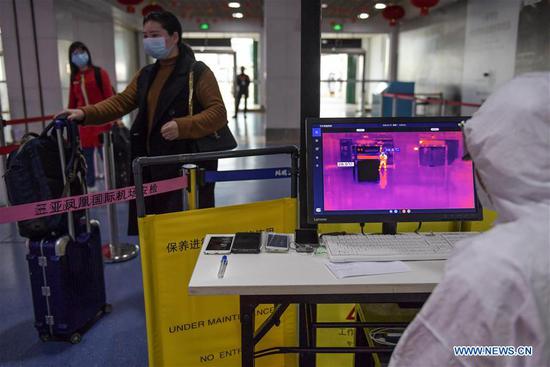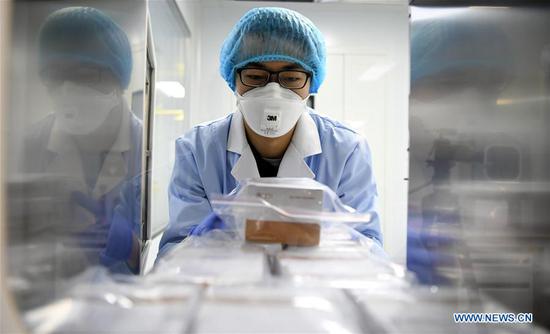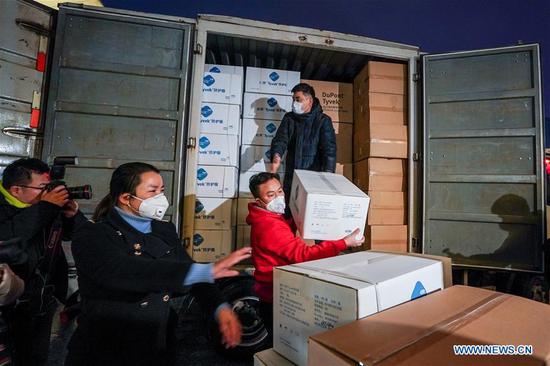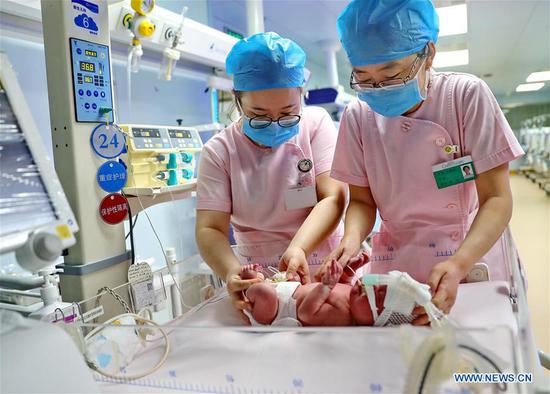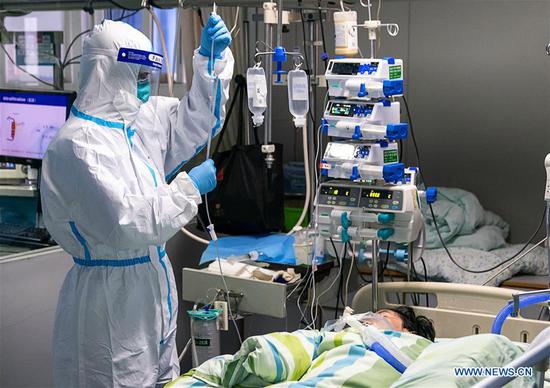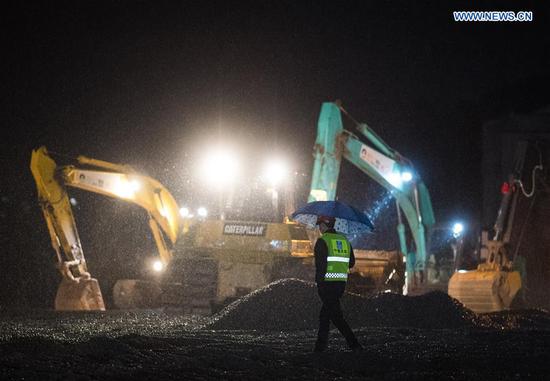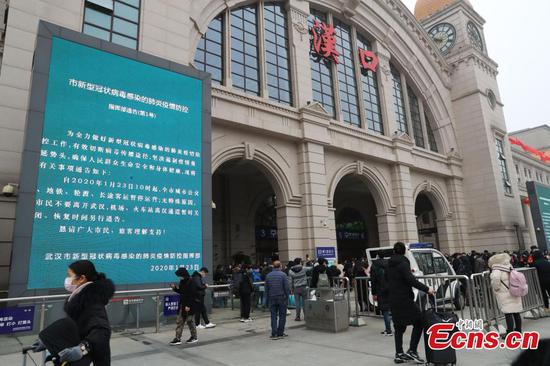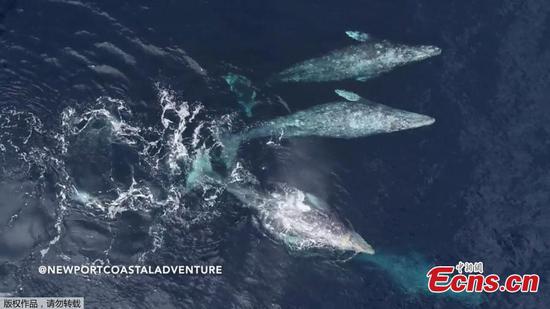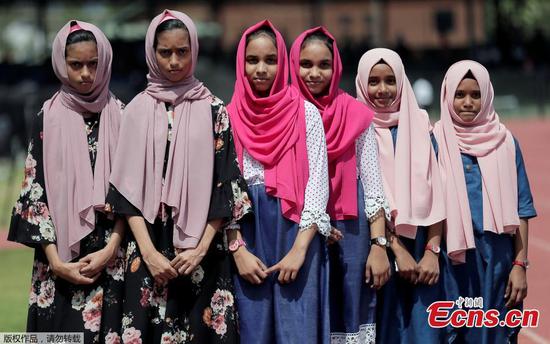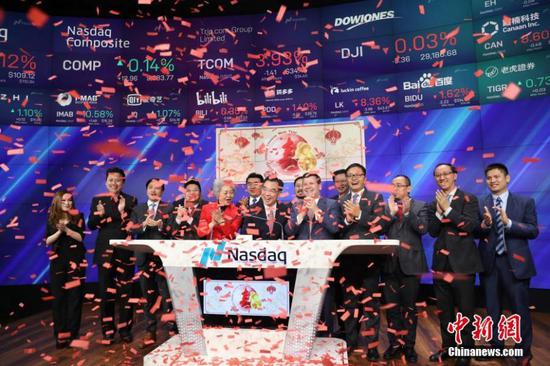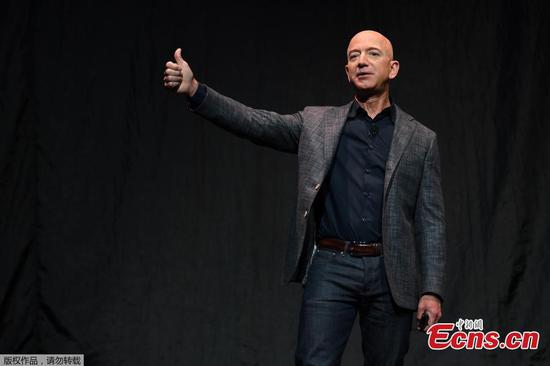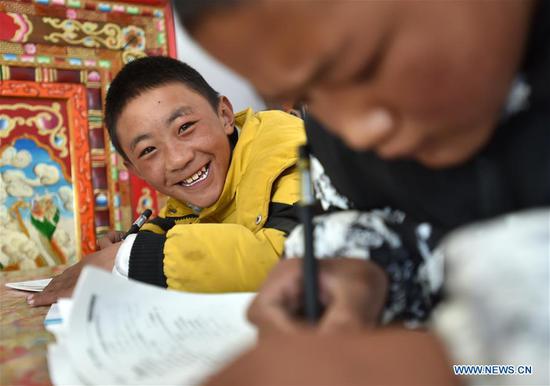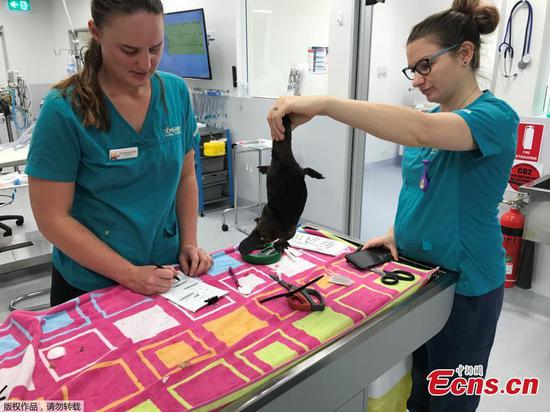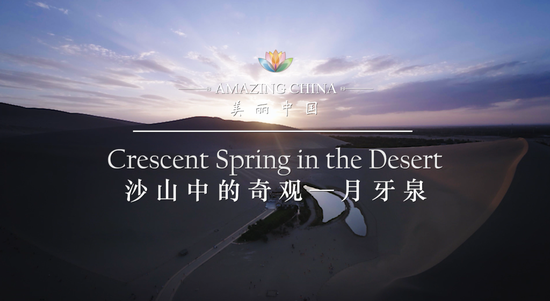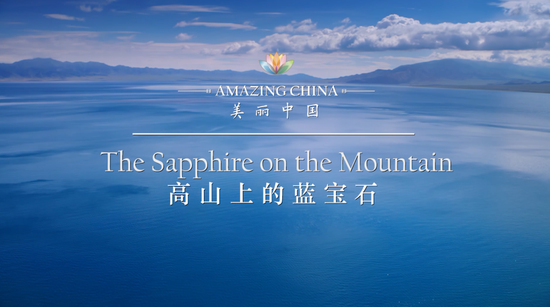
Technicians check solar panels at a textile company in Jimo, Shandong province. [Photo provided to China Daily]
"The countries in the Belt and Road are independent countries who will make up their own minds about development, but increasingly they are recognizing both the dangers of high carbon development and the opportunities in doing things differently," Stern said.
Last year saw the launch of the Belt and Road Initiative International Green Development Coalition, which is a voluntary UN-backed international network which aims to ensure that the Belt and Road brings long-term green and sustainable development to member countries.
Many of the BRI countries will already be making plans to adjust emissions targets ahead of the 2020 UN Climate Change Conference, which is a meeting of Paris Agreement signatories scheduled to take place in Glasgow, Scotland, this November.
As well as agreeing to the 2-degree target in 2016, signatories also submitted climate action plans, known as nationally determined contributions, or NDCs.
These NDCs are reviewed and adjusted in five-year stock-taking sessions, the first of which will occur in Glasgow. Nations will be expected to come up with more ambitious measures to reduce emissions, as the 2-degree threshold will almost certainly be passed as things stand.
By then, China and the European Union will likely represent the two largest economies coordinating on international climate change policy, as the US is scheduled to exit the Paris Agreement on Nov 4, exactly one year after Washington announced plans to withdraw.
Former UK environment minister Tim Yeo said this will call for close cooperation between China and the EU going forward. He suggests that China and Europe agree to a common set of standards on energy measures, which would in turn encourage the rest of the world to follow suit.
"China holds the key here," said Yeo, who is chairman of UK energy company Waste2Tricity. "I think it's up to China and the EU to get together and solve this problem, as the US administration has opted out. China can be a leader, and I think the EU could partner. And I say that because the EU has been very forward thinking in its approach to climate change. I think the new European Commission President Ursula von der Leyen is clearly very committed on the climate change agenda and I strongly welcome that."
Late last year, Von der Leyen announced the so-called European Green Deal, which details the first EU-wide law on climate change. Von der Leyen describes the deal as "Europe's man on the moon moment" and said she will bring forward proposals in her first 100 days in office, which commenced on Dec 1.
With a view to make Europe the world's first "carbon neutral" continent, Von der Leyen wants the EU to cut carbon emissions by 50 to 55 percent from 1990 levels by 2030, a significant improvement on the current target of 40 percent.
In December, 27 of the EU's 28 member states committed to the goal of carbon neutrality by 2050. Two nations-the Czech Republic and Hungary-agreed to the target on the provision that there would be an increased role for nuclear power, while Poland-which relies heavily on coal-abstained.
One of the proposals in the deal is to establish a carbon border tax on imports from countries that fail to act on emissions. The European Green Deal has sparked criticism on both sides of the debate-some critics argue its measures are too drastic and industry will suffer, while environmental groups say the emissions target is too low.
"Ursula von der Leyen is promising the European Green Deal will tackle the runaway climate crisis and the massive destruction of nature. But the climate targets she's proposing would be too little too late," Greenpeace EU spokeswoman Franziska Achterberg said in a statement.
Greenpeace called on Von der Leyen to up the emissions reduction target to 65 percent.
"The climate, ecological and inequality crises require a fundamental rethink of the economic system that for decades has rewarded pollution, environmental destruction and human exploitation," Achterberg said.
Yeo says that he believes there is room for integration and alignment between China and the EU on climate-related policies. He says that if both regions agreed on common standards in areas such as vehicle emissions and energy efficiency in the building sector, it would encourage global markets to go the same way.
"There is the opportunity for the EU to become the global partner of China, for mutual benefit and the world's benefit," Yeo said.









